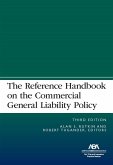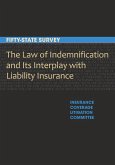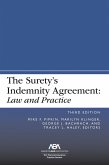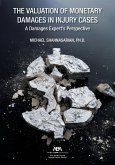No-fault insurance fraud amounts to a significant fraud tax on consumers, estimated at billions of dollars each year. Residents in states where no-fault insurance fraud is endemic have experienced large increases in their automobile insurance premiums. For example, in 2011, Florida residents paid nearly $58 per vehicle as the result of no-fault insurance fraud, and in New York, policyholders paid the equivalent of $229,000,000 in increased automobile insurance policies due to this fraud. Currently, twelve states have a no-fault law (FL, HI, KS, KN, MA, MI, MN, ND, NJ, NY, PA, and UT), and while there are considerable variations among the no-fault laws in each of these states, they can broadly be classified by the degree to which the respective systems permit or abolish tort liability, and the type of threshold an injured party must meet before tort liability is permitted.
Against this backdrop, automobile insurance companies have been the primary actors in the fight against no-fault fraud, engaging in civil litigation against no-fault insurance fraud rings. Written by practitioners who have litigated hundreds of no-fault anti-fraud cases, this is a practice-focused, general guide to no-fault insurance anti-fraud litigation from the perspective of a plaintiff-insurer, from inception of the case through to summary judgment.
Although most lawsuits are resolved through settlement or dispositive motion practice, thorough preparation of the case for trial is critical. The authors provide clear guidance on how to identify corporate structure fraud as well as fraud involving medically unnecessary services, kickbacks, or illusory services. Further chapters address the critical issues involved once an anti-fraud insurance case is initiated, including selecting the defendants and the venue, preparing the complaint, motions to dismiss, counterclaims, discovery, provisional remedies, and settlements, summary judgments, and trial.
Against this backdrop, automobile insurance companies have been the primary actors in the fight against no-fault fraud, engaging in civil litigation against no-fault insurance fraud rings. Written by practitioners who have litigated hundreds of no-fault anti-fraud cases, this is a practice-focused, general guide to no-fault insurance anti-fraud litigation from the perspective of a plaintiff-insurer, from inception of the case through to summary judgment.
Although most lawsuits are resolved through settlement or dispositive motion practice, thorough preparation of the case for trial is critical. The authors provide clear guidance on how to identify corporate structure fraud as well as fraud involving medically unnecessary services, kickbacks, or illusory services. Further chapters address the critical issues involved once an anti-fraud insurance case is initiated, including selecting the defendants and the venue, preparing the complaint, motions to dismiss, counterclaims, discovery, provisional remedies, and settlements, summary judgments, and trial.
Dieser Download kann aus rechtlichen Gründen nur mit Rechnungsadresse in A, D ausgeliefert werden.









